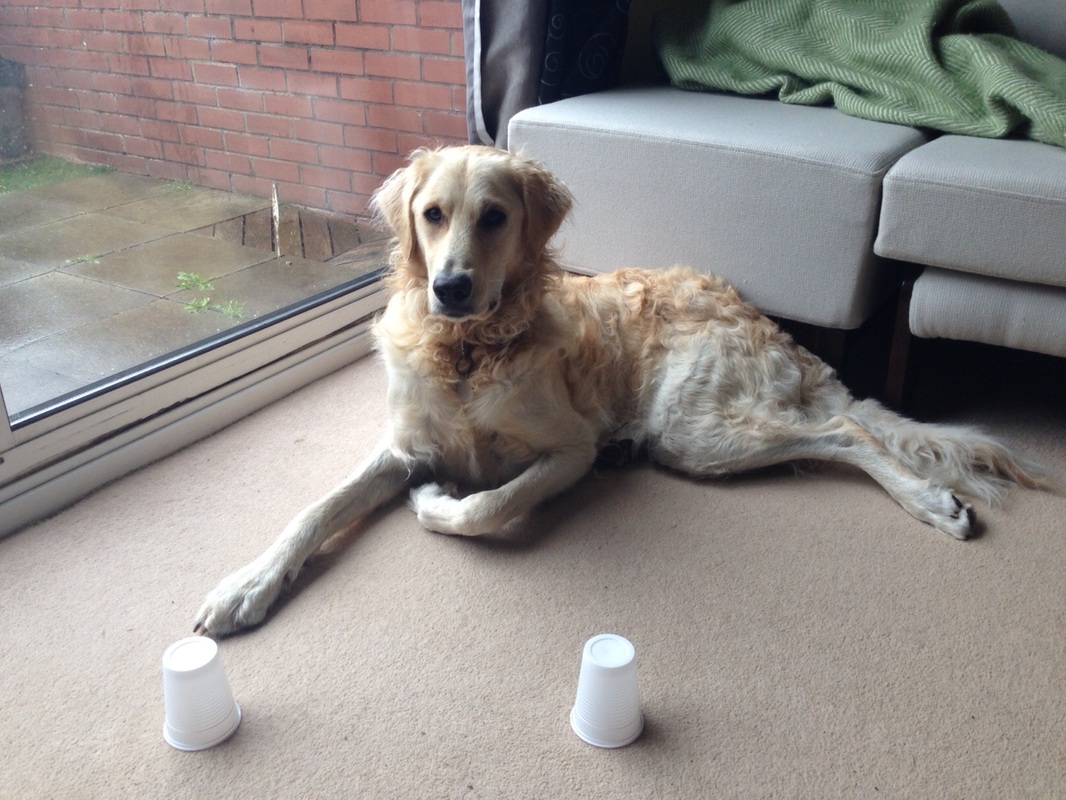"Researchers...would ask each participant to sit at a desk in front of the oscilloscope timer. They would affix EEG electrodes to the participant’s scalp, and would then instruct the subject to carry out some small, simple motor activity, such as pressing a button, or flexing a finger or wrist. ... During the experiment, the subject would be asked to note the position of the dot on the oscilloscope timer when "he/she was first aware of the wish or urge to act" (control tests with Libet's equipment demonstrated a comfortable margin of error of only +/-50 milliseconds). Pressing the button also recorded the position of the dot on the oscillator, this time electronically. By comparing the marked time of the button's pushing and the subject's conscious decision to act, researchers were able to calculate the total time of the trial from the subject's initial volition through to the resultant action. On average, approximately two hundred milliseconds elapsed between the first appearance of conscious will to press the button and the act of pressing it.
Researchers also analyzed EEG recordings for each trial with respect to the timing of the action. It was noted that brain activity involved in the initiation of the action, primarily centered in the secondary motor cortex, occurred, on average, approximately five hundred milliseconds before the trial ended with the pushing of the button. That is to say, researchers recorded mounting brain activity related to the resultant action as many as three hundred milliseconds before subjects reported the first awareness of conscious will to act. In other words, apparently conscious decisions to act were preceded by an unconscious buildup of electrical activity within the brain."
Since then, Libet's experiments have been offered as support of the theory that consciousness is merely a side-effect of neuronal functions, an "epiphenomenon" (a secondary phenomenon that occurs alongside or in parallel to a primary phenomenon) of our brain states.
This brings us to this week's thought experiment: Land of the Epiphens.
-------------------------------------------------
Epiphenia was a remarkable planet. So like Earth in appearance, and yet its inhabitants were different in one remarkable way. As one of them, Huxley, explained to the visiting Earthling Dirk, the Epiphens had long ago 'discovered' that their thoughts did not affect their actions. Thoughts were the effects of bodily processes, not the other way around. Dirk found this baffling.
"You can't really believe this," he protested to Huxley. "For instance, when we met in this bar, you said, 'Gee I could kill for a beer,' and ordered one. Are you saying that the thought 'I want a beer' had no effect on your actions?"
"Of course it didn't," replied Huxley, as though the question were idiotic. "We have thoughts and these often precede actions. But we know full well that these thoughts aren't causing the actions. My body and brain were already gearing up to order a beer. The thought 'I could kill for a beer' was just something that popped into my head as a result of what was happening in the physical brain and body. Thoughts don't cause actions."
"For Epiphens, maybe," replied Dirk.
"Well I can't see what's different about humans," said Huxley. And for a while at least, nor could Dirk.
Baggini, J., The Pig That Wants to Be Eaten, 2005, p. 61.
-------------------------------------------------
Unsurprisingly, there have been several criticisms leveled at the Libet experiment and the conclusions that have been drawn from it. There's the "disconnect criticism" (this doesn't really apply to real life), the "timing criticism" (the choosing self and reporting self aren't perfectly synched), the "spontaneous activity criticism" (this is just lowering a choice to the random noise in our motor system that is always operating below the normal threshold of a decision), and the "only deterministic on average criticism" (28% of the original experiments actually showed at least one instance of brain activity after the reported decision).
Each of these criticisms are enough to cast serious doubt on the Epiphens' discovery that their thoughts did not affect their actions, as well as on the belief of free will determinists like Sam Harris who think their position has been scientifically proven correct. I've already written two different blog posts (1,2) about my compatibilist position in the free will debate, so I'll just add another criticism to the Libet experiment that I haven't seen before.
At the beginning of the experiment, participants were instructed to “let the urge [to move] appear on its own at any time without any pre-planning or concentration on when to act.” To me, this is precisely the beginning of when the brain would begin to prepare to act. This is basically an instruction to the subconscious thinking system 1 that Daniel Kahneman wrote about in Thinking, Fast and Slow. If our neuroscience was sophisticated enough to pick this up, I imagine some change would show up in the brain as soon as this instruction was given—long before the only change Libet was looking for in the secondary motor cortex. The fact that Libet (sometimes!) found a change bubbling up from the subconscious before we made a final decision isn't really surprising at all. This can and does happen all the time. But just as instructions coming from experimenters could cause this chain reaction to begin, so can instructions from ourselves after conscious, rational, system 2 thinking sessions. This isn't "free will" in its most extreme definition—it just brings me back to the compatibilist position I've taken where we have freedom to choose from among the many influences we have experienced—but it is another strong argument against the most extreme determinism that is out there in the land of the epiphens.


